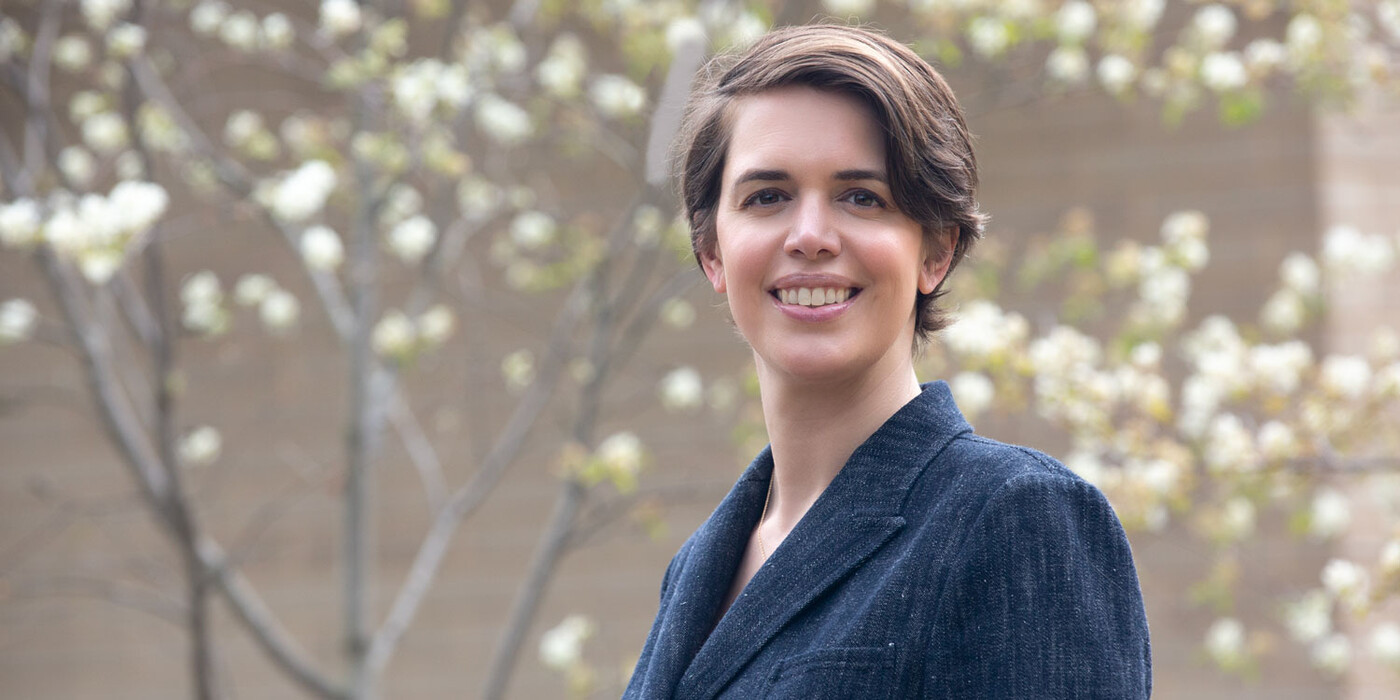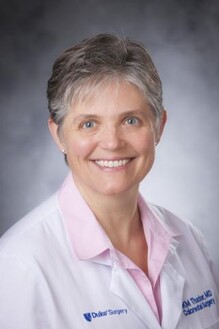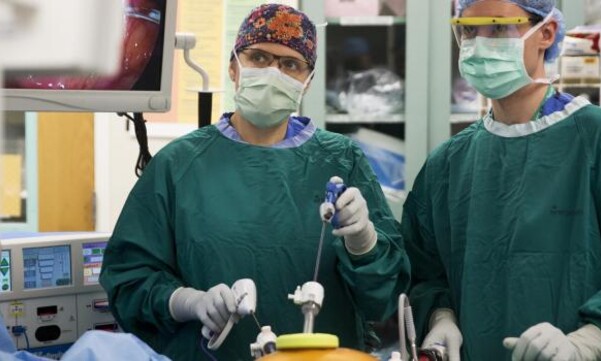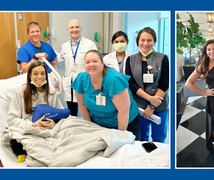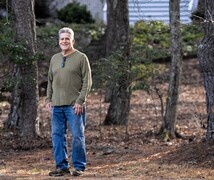At age 38, Brooks Bell thought she was too young to have cancer, so she was reassured when doctors attributed blood in her stool to internal hemorrhoids. But she could not shake the feeling that something was wrong. After several doctors’ appointments, she was diagnosed with stage 3 colorectal cancer. Thanks to surgery to remove a portion of her colon, chemotherapy, and personalized cancer testing at Duke, today she is cancer-free and on a mission to get more young people tested for colorectal cancer.
A Call to Her Doctor
In 2019, the data analytics company Bell founded was thriving, and with that came lots of business travel. On the morning of a typical out-of-town conference, she noticed something red in her stool, but she wasn’t sure that it was blood. Bell called her primary care doctor who assured her the cause was hemorrhoids, probably brought on by the blood thinner she was taking. Relieved, Bell went about her day, but the problem continued every few days for about a month.
Not Too Young for Cancer
Still concerned, she scheduled a physical exam with a different doctor near her home in Raleigh, NC, who agreed with the original diagnosis. After all, she had no other symptoms and no family history of cancer. Bell had done her research and knew that her symptoms did not align with hemorrhoids. “I was afraid of coming across as alarmist,” Bell recalled, but she reached out to a gastroenterologist for a third opinion anyway. The doctor told Bell that she was not too young for colorectal cancer and ordered a colonoscopy. The news was not good -- the test revealed that Bell had a tumor in her colon that needed to be surgically removed.
Choosing the Best Surgeon
Despite her despair, Bell knew what she needed to do. She resigned from her company so she could focus on her health. The next step was to find the best surgeon in the area. “I discovered that the most important decision a patient can make is choosing their surgeon,” she said. She chose Julie K. Marosky Thacker, MD, a colorectal surgeon at Duke Health, in part because of her role in pioneering "enhanced recovery," which is shown to improve surgical outcomes. It eliminates the need for fasting and laxatives before surgery and encourages eating and moving soon afterward.
On February 13, 2019, Dr. Thacker and her team removed 10 inches of Bell’s colon as well as two cancerous lymph nodes. Afterward, Bell enjoyed coffee and pizza with her husband and returned home the next day.
The Test That Changed Everything
Bell started chemotherapy six weeks after surgery to reduce the chances of the cancer coming back. After three months of treatment, she and her Duke oncologist John H. Strickler, MD, were concerned. “There’s a marker in the blood that we test for colon cancer called CEA,” explained Dr. Strickler. During Bell’s chemotherapy, this marker rose. “We got a CT scan that showed no evidence of disease, but there was that worrisome marker in her bloodstream,” said Dr. Strickler.
Understandably, Bell was haunted by thoughts of her cancer returning, so Dr. Strickler recommended a new test called molecular residual disease testing. The test, which is personalized for every patient, identifies cancer DNA fragments in the bloodstream. A negative result would significantly improve the likelihood that Bell was cancer-free. That would reduce her stress and the number of surveillance imaging tests required in the future. A positive result would indicate that cancer was still present in her body.
This time the news was excellent. Her results were negative. “That was the first time I actually felt cancer-free," Bell remembered. “That test helped me start living again.”
Celebrating Colonoscopies
Four years after her diagnosis, Bell feels great, remains cancer-free, and according to Dr. Strickler, her prognosis is excellent. Bell is channeling her energy into promoting colonoscopies as the best way to detect and prevent colon cancer -- and to make them accessible to more people. “We should be celebrating colonoscopies as an amazing, powerful tool for fighting cancer,” she said.
